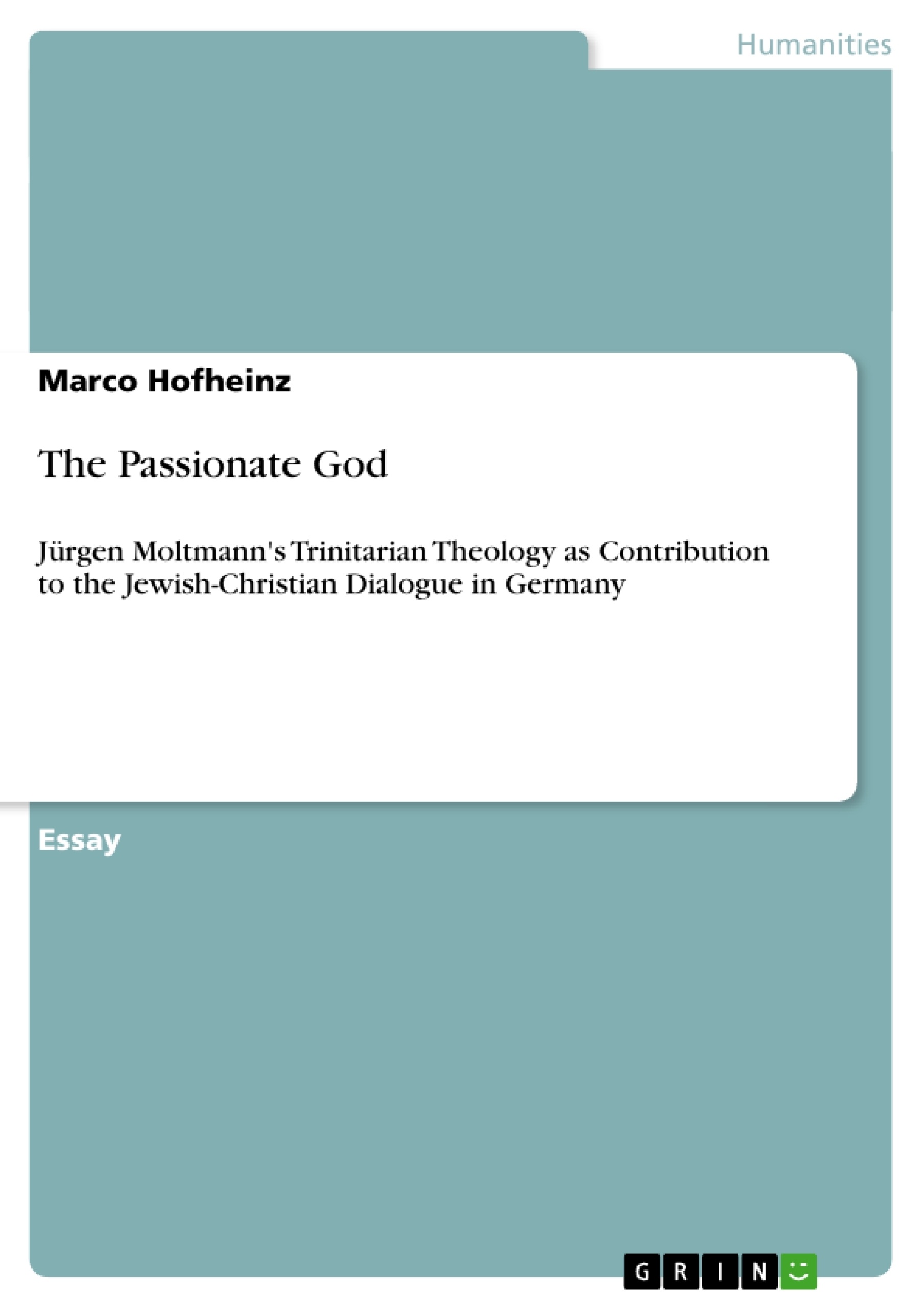This essay reviews Jürgen Moltmann's volume, "The Trinity and the
Kingdom: The Doctrine of God" (1980). The author raises the question: To what degree is Moltmann's Trinitarian theology to be judged as a helpful contribution to the Jewish-Christian dialogue given the fact that Jews would disagree fundamentally with the description of God's unity as a relationship between three fully divine beings?
Inhaltsverzeichnis (Table of Contents)
- Extended Preliminary Remarks: The Methodological Vagueness of a(n) (Anti-)Systematical Contribution to Trinitarian Theology
- Moltmann and the “God of the Philosophers”: A Farewell to Theism
- Critical Incidental Remarks: Social Trinitarism as Victim of the Dangerous, “Whimsical” Analogy
Zielsetzung und Themenschwerpunkte (Objectives and Key Themes)
This essay aims to present a comprehensive overview of Jürgen Moltmann’s trinitarian theology, as presented in his book "The Trinity and the Kingdom of God." It explores his method, his rejection of traditional theistic understandings of God, and his concept of “social trinitarism.”
- Moltmann's critique of systematic theology and his preference for a non-systematic approach
- His concept of God's pathos and the suffering of God in the event of the cross
- His emphasis on the sociality of the Trinity and the connection between God's trinitarian being and human community
- His development of “social trinitarism” as a model for human fellowship and the potential pitfalls of analogical reasoning
Zusammenfassung der Kapitel (Chapter Summaries)
- Extended Preliminary Remarks: The Methodological Vagueness of a(n) (Anti-)Systematical Contribution to Trinitarian Theology: This section examines Moltmann's rejection of systematic theology and his preference for a “fragmentary” approach. It highlights his concern with the potential dangers of systematic theology and his preference for a more open and narrative theology.
- Moltmann and the “God of the Philosophers”: A Farewell to Theism: Here, the author analyzes Moltmann's critique of traditional theistic concepts of God. Moltmann rejects the notion of God as an apathetic and unchanging being, and instead emphasizes God's pathos, or suffering, as revealed in the cross.
- Critical Incidental Remarks: Social Trinitarism as Victim of the Dangerous, “Whimsical” Analogy: The final chapter explores Moltmann's concept of “social trinitarism” and its implications for understanding the relationship between God and humanity. The author examines the potential dangers of using analogy in theological discussions and the challenges of applying the concept of the Trinity to human social structures.
Schlüsselwörter (Keywords)
This preview focuses on key concepts such as: trinitarian theology, social trinitarism, God's pathos, systematic theology, non-systematic theology, analogy, and the relationship between God and humanity. It also includes relevant figures like Jürgen Moltmann, Dietrich Ritschl, and Blaise Pascal.
Frequently Asked Questions
What is the central focus of Jürgen Moltmann's Trinitarian theology?
Moltmann emphasizes the concept of "social trinitarism," focusing on God's pathos (suffering) and the relationship between the Trinity and human community.
How does Moltmann critique traditional theism?
He rejects the "God of the Philosophers" who is seen as apathetic and unchanging, arguing instead for a God who suffers in the event of the cross.
What is Moltmann's methodological approach to theology?
Moltmann prefers a non-systematic, "fragmentary" approach, which he believes is more open and narrative compared to traditional systematic theology.
Why is Moltmann's theology relevant to Jewish-Christian dialogue?
The essay explores whether Moltmann's description of God's unity as a relationship between three divine beings is a helpful or problematic contribution to this dialogue.
What are the potential pitfalls of "social trinitarism" mentioned in the essay?
The author warns that social trinitarism can fall victim to "whimsical" analogies when trying to apply the concept of the Trinity directly to human social structures.
- Quote paper
- Marco Hofheinz (Author), 1998, The Passionate God, Munich, GRIN Verlag, https://www.grin.com/document/141408



